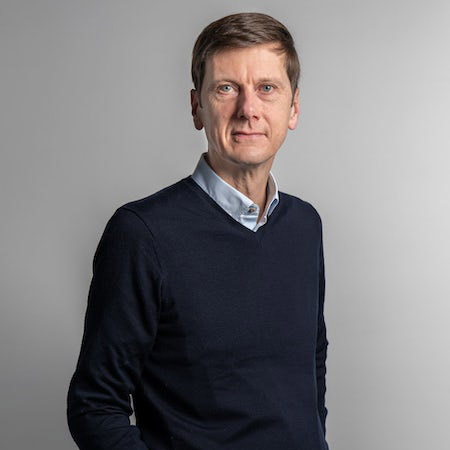REBALANCE – LODGING INEQUALITY
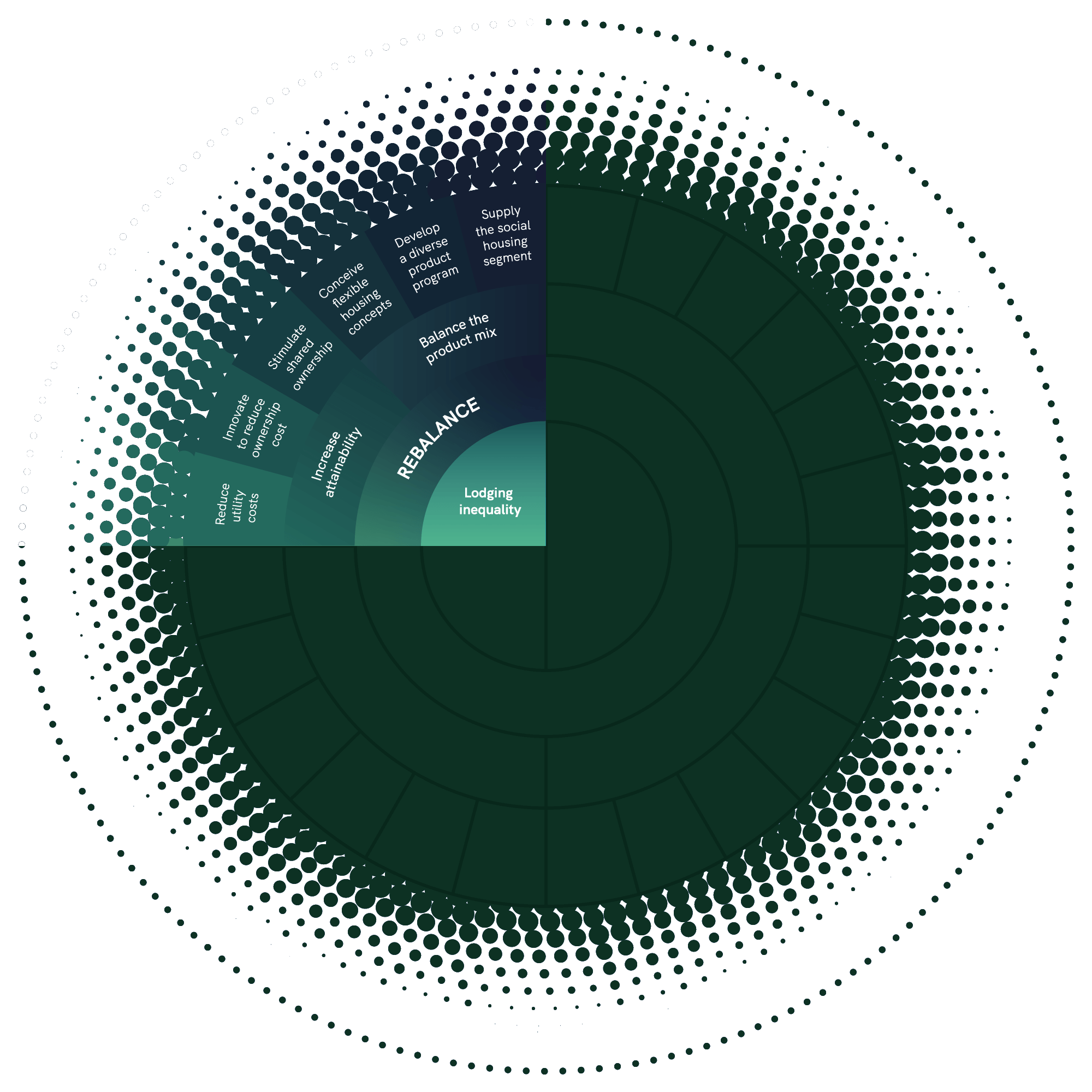


BALANCE PRODUCT MIX
Conceive flexible housing concept
Develop a diverse product programme
Supply the social housing segment

INCREASE ATTAINABILITY
Reduce utility costs
Innovate to reduce ownership costs
Stimulate shared ownership
492
200%
26%
50%
On average energy expenses of Revive project residents are 50% lower versus traditional housing, because of low primary energy demand in combination with the application of sustainable energy solutions.
15
We reduce mobility costs by minimising the need for long commutes and extensive travel by using the principle of the 15 minute city throughout our projects. With essential services and amenities within walking or biking distance.
60
Sixty start-ups and scale-ups – active in the fields of smart and resilient cities – have been endorsed through various accelerator programs. Together with its partners Revive is actively supporting these entrepreneurs to create the liveable, lovable and climate friendly cities of tomorrow!
Ambitions
Flexibility in space
We are looking to include incremental housing throughout our pipeline projects. This is a housing development strategy where homes are built in stages, allowing residents to gradually expand and improve their dwellings over time as their financial resources and needs evolve. This approach typically starts with providing basic, essential structures, such as a core unit with basic facilities, which can be expanded upon as the homeowner’s circumstances permit.
Flexibility in programma
In our future projects we aim to upgrade flexibility in our programme and buildings, enabling a resident or user to stay on-site for a whole lifespan. It is so important for a person to be able to stay connected in the social framework that he/she is familiar with and is not alienated every time this person changes of life phase. Revive accepts the challenge to investigate, innovate and implement how flexible the used space can be. We do not only see this investigation in a spatial structure but also in a legal structure.
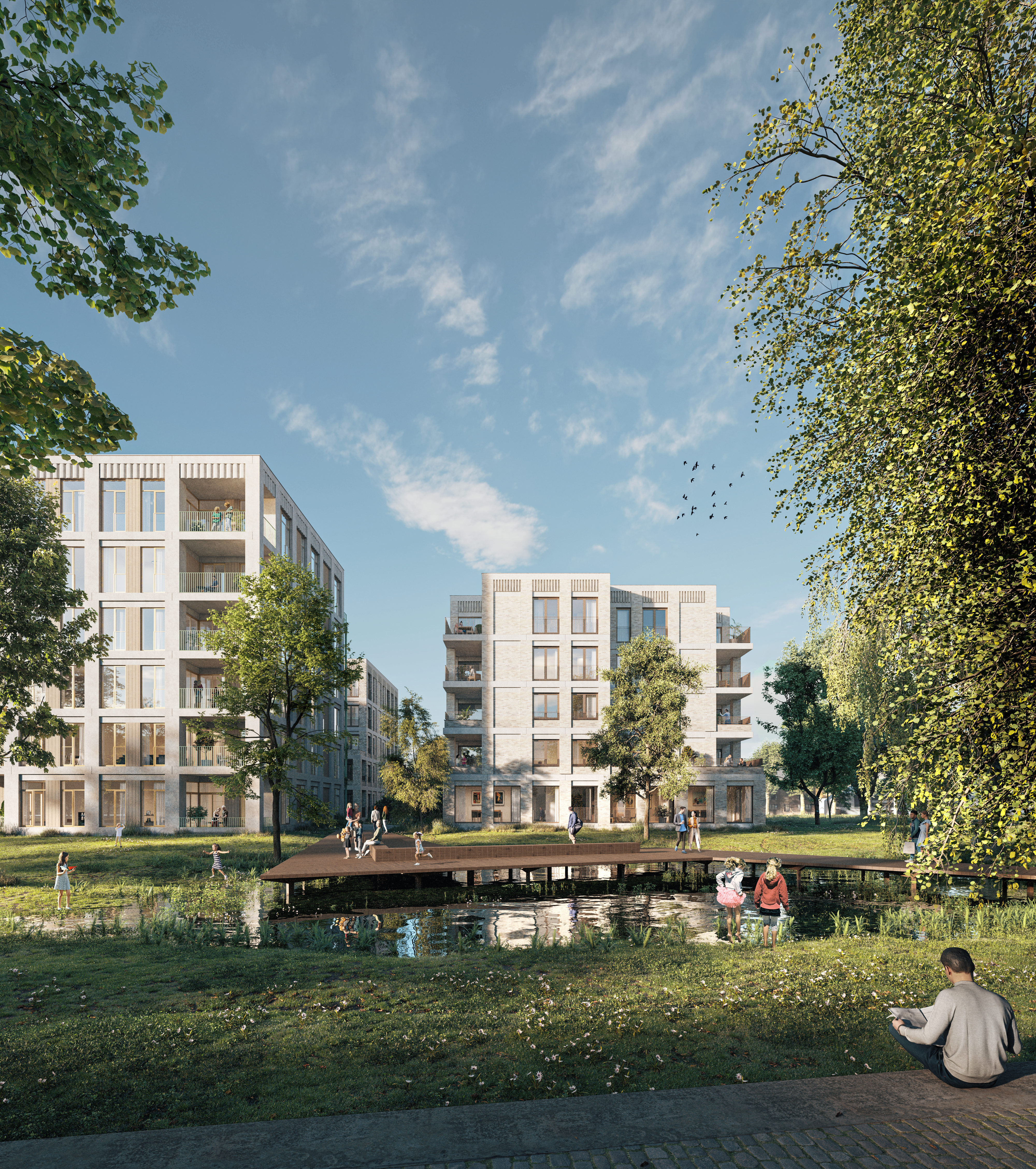
Cases
High social impact – Ekla
Experimenting with ownership - Watt
Intertwinning functions - Saffrou
High social impact – Ekla
EKLA is an audacious remediation, repurposing and upgrading project in the municipality Sint-Jans-Molenbeek, the second poorest in Belgium. The former brewery was abandoned and partly demolished in the eighties. Revive acquired a first part of +6.000 m2 vacant but contaminated land and turned it into a high density (FAR of 4), mixed use site where live, work, play and learn harmoniously blend together. Most importantly, 50% of the residential units are social housing, thanks to a cooperation with Inclusio. The 24.000 m2 project changes the face of the neighbourhood and brings local and new residents together. in Wallonia to the site, accounting for 7.500 km of heavy transport.
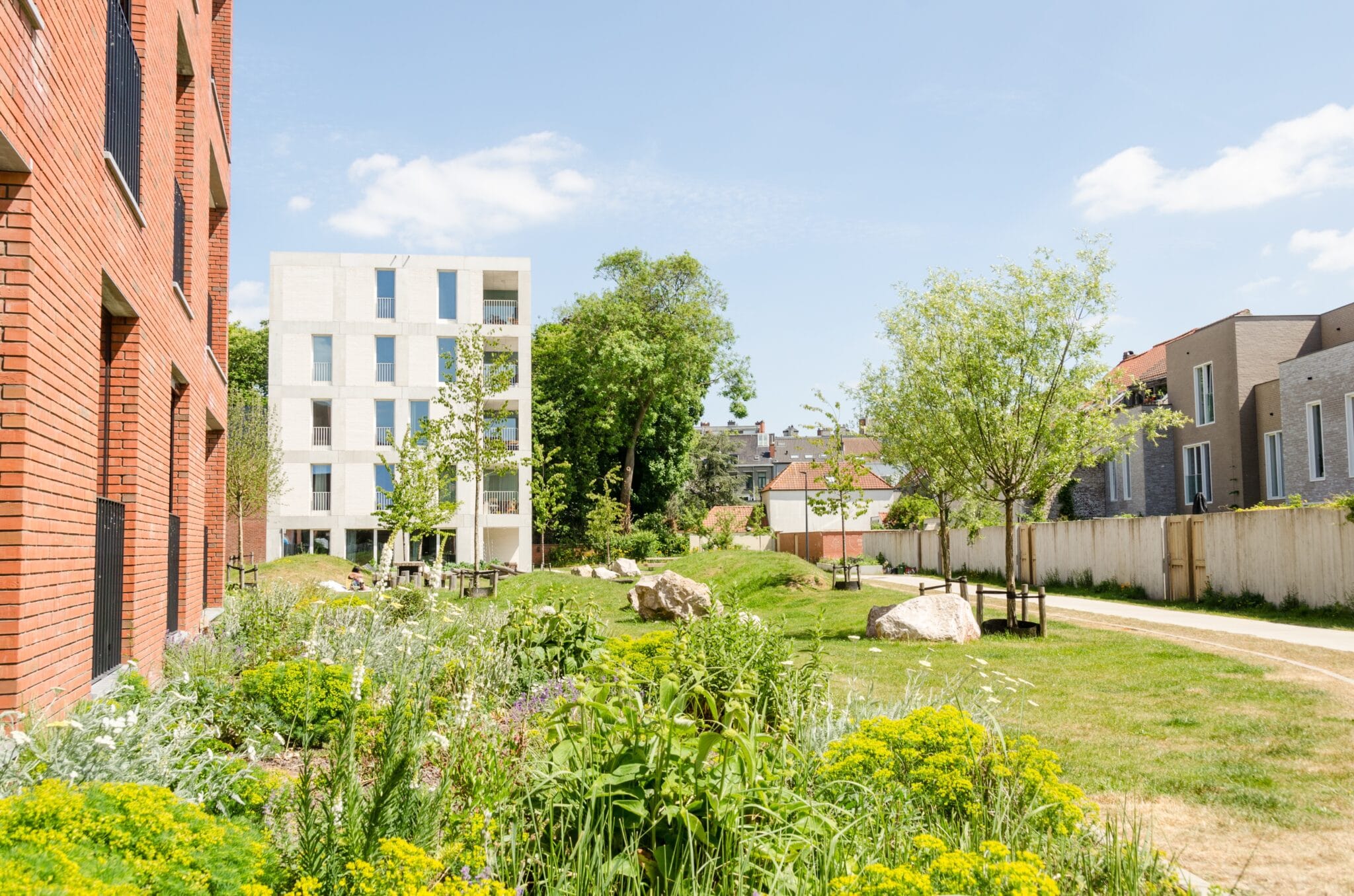
Experimenting with ownership – Watt
Sharing is caring. In the Watt site (Ghent, Belgium) we experimented for the first time with what ‘ownership’ can mean. We shifted the idea of having your own parking lot to a shared use parking. The underground parking of Watt combines parking for the residents of the houses and the apartments with the users and visitors of the adjacent office complex and restaurant. After studying the occupancy rate it turned out that the parking was underused more than half of the day. Shifting to a flexible use resulted in up to 30% less parking space required, saving money / energy / materials / space. The parking is also used as a public parking, which provides an income and a return for the owners. A smart system indicates when it might become too full, so the parking is closed for the public and the residents always have a guaranteed parking lot.
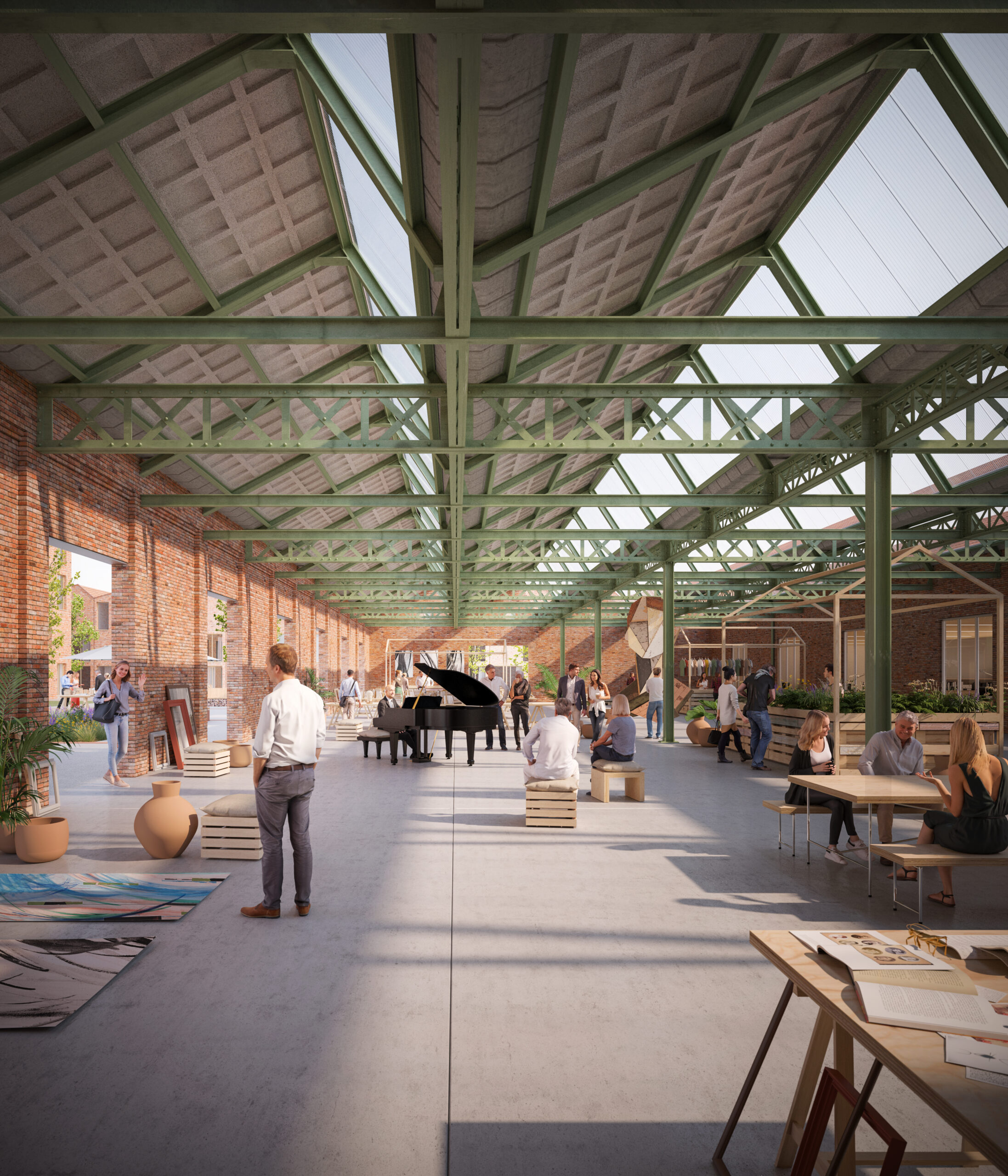
Intertwinning functions – Saffrou
The Saffrou project is a former textile factory turned into a mixed-use development. The project integrates various social groups by offering diverse housing options, communal areas, and amenities that cater to different needs and lifestyles. The project includes a residential care centre housing, social housing, life-proof apartments, a co-designed community garden, large and green open areas and corridors, a tiny urban forest and more.

